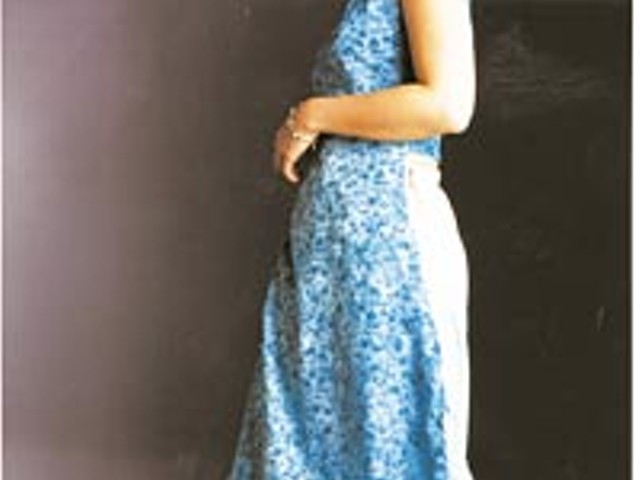By the time saxophonist and vocalist Norma Jean Bell's band had sound-checked on the main stage, the weather and the mood of the crowd was already lightening. An earlier downpour during the morning had broken for the moment and the tension surrounding the festival in the faces of the crowd seemed to slip away as anticipation settled in. Bell, a gloriously proud diva in an all-red outfit, took the lead chanting, "Everybody!" The early risers had already heard the call to arms. By the time she finished her set, a little before one o'clock, her band and the growing crowd had indeed, in her words, "chased the rain away." By one, the first strong beams of sun light – and euphoria – had hit the plaza bowl.
Terrence Parker, Detroit house innovator and rock-the-party genius, announced his intentions early as well, informing a twenty-something Motor-stage crowd unfolding below him that an educational session was about to transpire. Acknowledging over a microphone that despite the fact that the crowd was most likely watching "Superfriends and Mutant Ninja Turtles" when he and his generation were creating Detroit's house culture from the bottom up, Parker declared that it was, "alright, that it's all about getting an education." Between a ripped-up version of Michael Jackson's "PYT" and a doubled-session of George Kranz's "Din Da Da," Parker made his point.
Other early afternoon DJs echoed the spirit of Parker's expert performance. Norm Talley and Delano Smith owned the CPOP stage all afternoon, drawing an older and blacker, but still extremely diverse, crowd to their alter. Whether it was Talley's "Strings of Life" / "French Kiss" medly or Smith's deep, pulsating sampling of "The World is a Ghetto," the CPOP stage proved that, like last year (Minx, Mike Clark, Theo Parrish, etc.), it was holding down the soul.
The already swelling crowd itself is, so far, like last year's, an ocean of contrasts, from young to old, black to white, rave to deep-house, and single (and looking) to married (with children). Culturally too, whether it was blue Ford logos and Bacardi fly-bys, to pink, "I Support Carl Craig" stickers, to shirtless man-boys near the fountain to breakers in the festival bowl, the day was a testament to both the universal appeal of the music and the cultural ambivalence of Detroit's dance culture.
By the time the more abstract and postmodern sounds of Autechre and Tortoise hit the stage, the plaza was in virtual overflow. "By the time I got to Terrence Parker at the Motor Stage and saw the crowd there I knew it was going to be a good day," a knowing Carl Craig intoned.
Whatever the final count (or word) the early results are in: Detroit is winning.
Carleton S. Gholz writes about music for Metro Times. E-mail him at [email protected]




